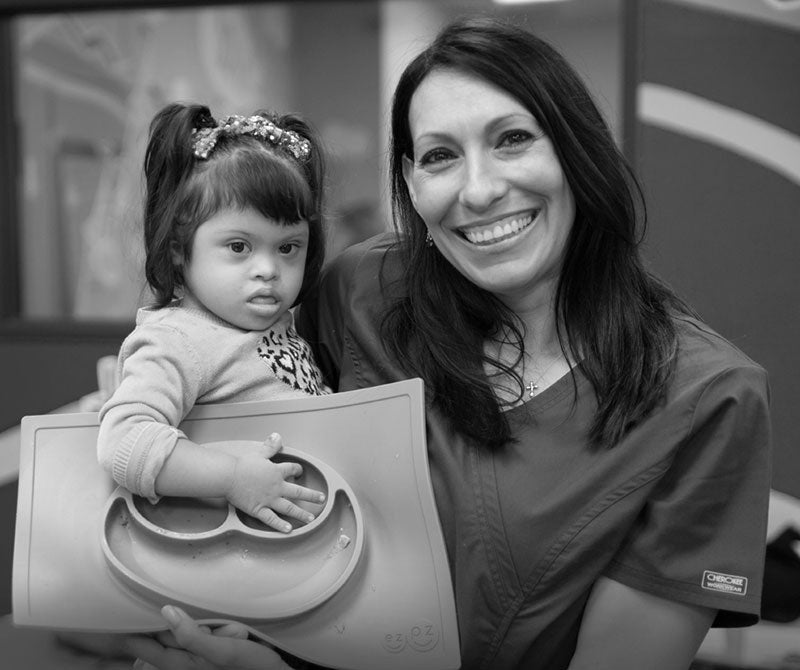Are You Feeding Baby Too Early?
Recommendations: The American Academy of Pediatrics and the World Health Organization encourage parents to start baby on solids at six months of age. I also recommend starting solids at about six months, but it depends on the child’s readiness signals. Here is my checklist of eight signals to look for:
- Hips: Can baby sit up on their own without losing their balance? If not, it may be too early.
- Arm: Does baby reach for your food or drink and/or grasp objects? If not, it may be too early.
- Hand: Does baby bring their hand, objects or food to their mouth? If not, it may be too early.
- Head: Does baby have the head control to look up, down and to both sides without falling forward? If not, it may be too early.
- Eyes: Does baby stare at you intently while you are eating and/or have an interest in food? If not, it may be too early.
- Mouth: Does baby start to drool, munch on their hand or open their mouth in time with you feeding yourself? If not, it may be too early.
- Tongue: Is baby’s tongue thrust reflex gone? If not, it may be too early.
- Brain: Is baby about six months of age? If not, has baby mastered the other seven signs?
Feeding Gear: Having the right gear can help baby be successful with solids. My two-step gear guide is to have the following:
- Highchair: The key to safe eating is having a good highchair (to help with baby’s head control and hips for sitting).
- Dishes: Silicone dishware like the Mini Mat and Tiny Bowl suction to the table (or highchair tray) to help baby with balance. They also foster effective arm and hand movements.
Common Reasons Parents Start Too Early: I think it is important to understand why parents may start introducing foods to early. Here are the three most common reasons I have encountered:
- Starting Solids Because of Comparing: In feeding therapy, parents confess to me that they started solids too soon because they were comparing their baby to their first born. Others state that well-meaning family members, neighbors, friends or even their spouse started comparing their baby to the ‘infant next door’ and they felt coerced into feeding early. But before we cave into peer pressure, we need to make sure baby has the skills to safely eat solids.
- Starting Early Because of a Fussy Baby: Many families explain that they started solid foods early because they thought it might help calm their fussy baby. Before we use food for comfort, we need to ensure baby is developmentally equipped to eat.
- Starting Early Because of Mixed Signals: Parents tell me that they were confused about what signals to look for. Receiving mixed signals can be frustrating for both baby and the parents. If baby is only showing one of the many signs of readiness, then baby is not quite ready…but they will be soon!
I hope these tips help parents make an informed decision regarding solids based on the development of their baby. What are some ways your baby told you they were ready for solids? #ezpzfun #startingsolids
Happy Feeding!
Dawn Winkelmann, M.S, CCC-SLP
SPEECH LANGUAGE PATHOLOGIST & FEEDING SPECIALIST FOR EZPZ
Dawn Winkelmann, a.k.a “Ms. Dawn”, has treated thousands of kids across the globe by helping families overcome picky eating stages and food refusals, while adding new foods into their diet. Her high success rate is attributed to Ms. Dawn bringing her education, experience, sense of humor and her favorite feeding products to the family dinner table.
You will find Ms. Dawn’s expert feeding advice to be positive and fun for the entire family! She adapts complicated feeding/swallowing research and makes it practical and easy for parents! Get ready to learn the science behind your favorite feeding products and ways to bring happy family mealtimes back!



